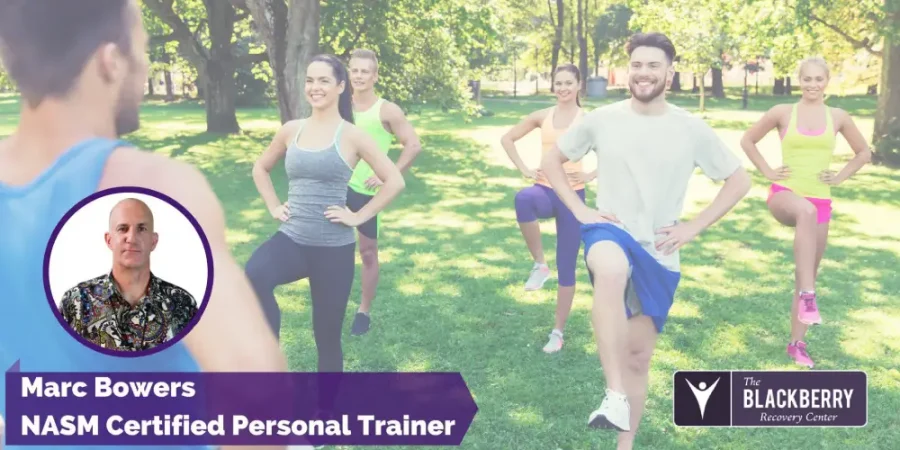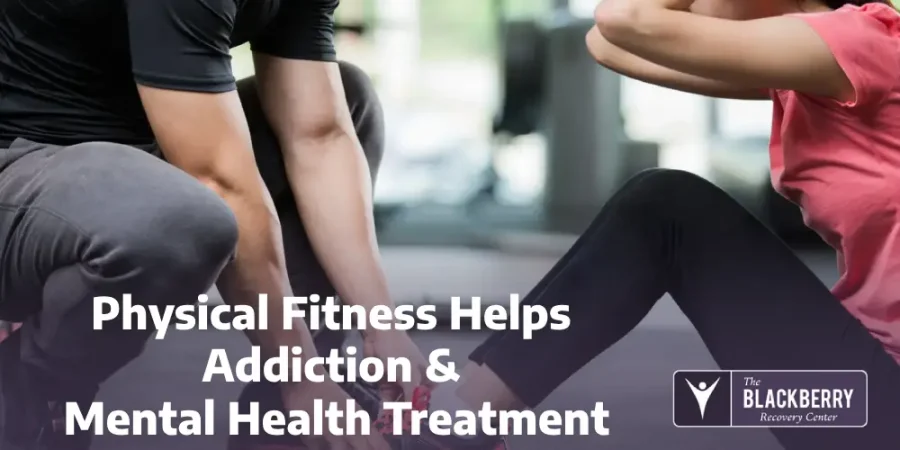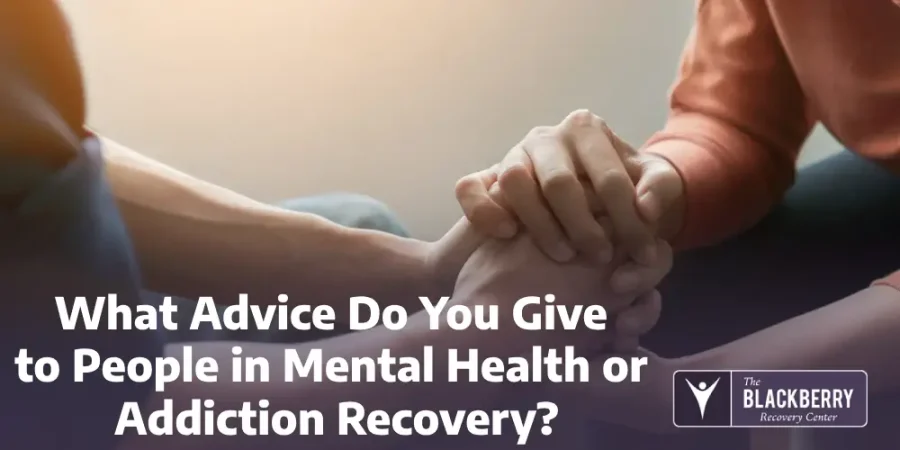When you imagine your time at a mental health and addiction treatment center, you probably imagine mental health experts, counselors, and support groups. And while those are all integral treatment options for mental illnesses and substance use disorders, physical health is another important area to consider. Time and again, research has shown that your physical well-being affects your mental well-being, which is why The Blackberry Center takes a comprehensive look at overall wellness.
To that end, our on-site physical trainer, Marc Bowers, NASM uses exercise and fitness to help individuals improve their mental health. If you want to better understand the connection between mental and physical health, or if you have questions about the services you can expect at our Florida mental health center, then you’ll enjoy Marc’s expertise as he answers all of your questions.

What Is Your Background?
Physical fitness has played a large role in my life for as long as I can remember. Growing up, I played a lot of sports, including basketball, football, and baseball. After I graduated high school in 1988, I joined the United States Navy, underwent (BUDs) Navy Seal training, and served during Operation Desert Storm.
In 1993, I received an honorable discharge, and I started looking for the next step forward in my life. I remembered that as a teenager, I enjoyed training in Taekwondo, so I decided to transition back into martial arts. I earned the title of Florida Heavyweight Champion in 1997, and after that I decided to focus less on fighting and more on helping people in whatever way I can. That led me to being certified by the National Association of Sports Medicine as a personal trainer, which brings me to where I am now.
For the past 18 years, I’ve worked as a personal trainer, helping people reach their fitness goals and improve their mental well-being along the way. From my perspective, my job is to help people to live better, longer lives by showing them how to take care of their physical health. And more often than not, I see that leading to distinct improvements in mental health.

How Does Physical Fitness Help in Addiction Recovery and Mental Health?
I don’t think of physical fitness and mental wellness as separate things; to me, they’re clearly connected. Both in studies and in my own work, it’s clear that exercise can reduce stress, improve sleeping habits, lead to move improvements, give people more energy, and bolster the immune system.
In The Blackberry Center’s dual diagnosis program, there’s a lot of emphasis about the connection between mental health and addiction. And in that same way, as exercise makes mental illness symptoms easier to manage, that takes away a lot of the distress that leads to addiction. I’ve seen physical exercise improve patients’ chances of avoiding relapse, and that’s why I’m so passionate about the work that I get to do here.
What Classes Do You Teach?
I like to offer something for everyone, so I teach a variety of classes, including:
Full-body workouts with resistance bands
Calisthenics
Boxing
Kickboxing
To me, it’s important to remember that the goal here is not to change appearance or to lose weight (although those things certainly can happen). The important thing is getting individuals in touch with their physical well-being and giving them the confidence to make a long-term recovery. That’s the work that I do, and that’s what makes a real difference in quality of life.

What Advice Do You Give to People in Mental Health or Addiction Recovery?
There is nothing more important than your health. If you don’t feel comfortable in your body, that makes it so much harder to enjoy the life that you have, and the unhappier you are, the easier it is to fall back into a mental health issue or substance abuse problem.
I honestly don’t believe that there’s any person who can’t improve their mental health or can’t achieve sobriety. In my experience, mental illness and addiction both trick you into thinking that you have to stay in that place. But that’s exactly what it is: a trick. Maybe you can’t be exactly where you want to be today. But you can improve, and you can put in the work, and you absolutely can live a healthy lifestyle that isn’t bogged down by addiction or unchecked mental illness.
Recovery Starts Now
Nobody has to fight mental illness or addiction alone. If you’re ready to take the first step and seek professional help, follow that feeling, because that feeling is what will get you on the path to recovery. All you have to do is trust it.
If you would like to discuss enrollment or if you have any questions, call our admissions specialists at (813) 908-4199 or fill out our confidential contact form. Remember, recovery can start now if you let it.
